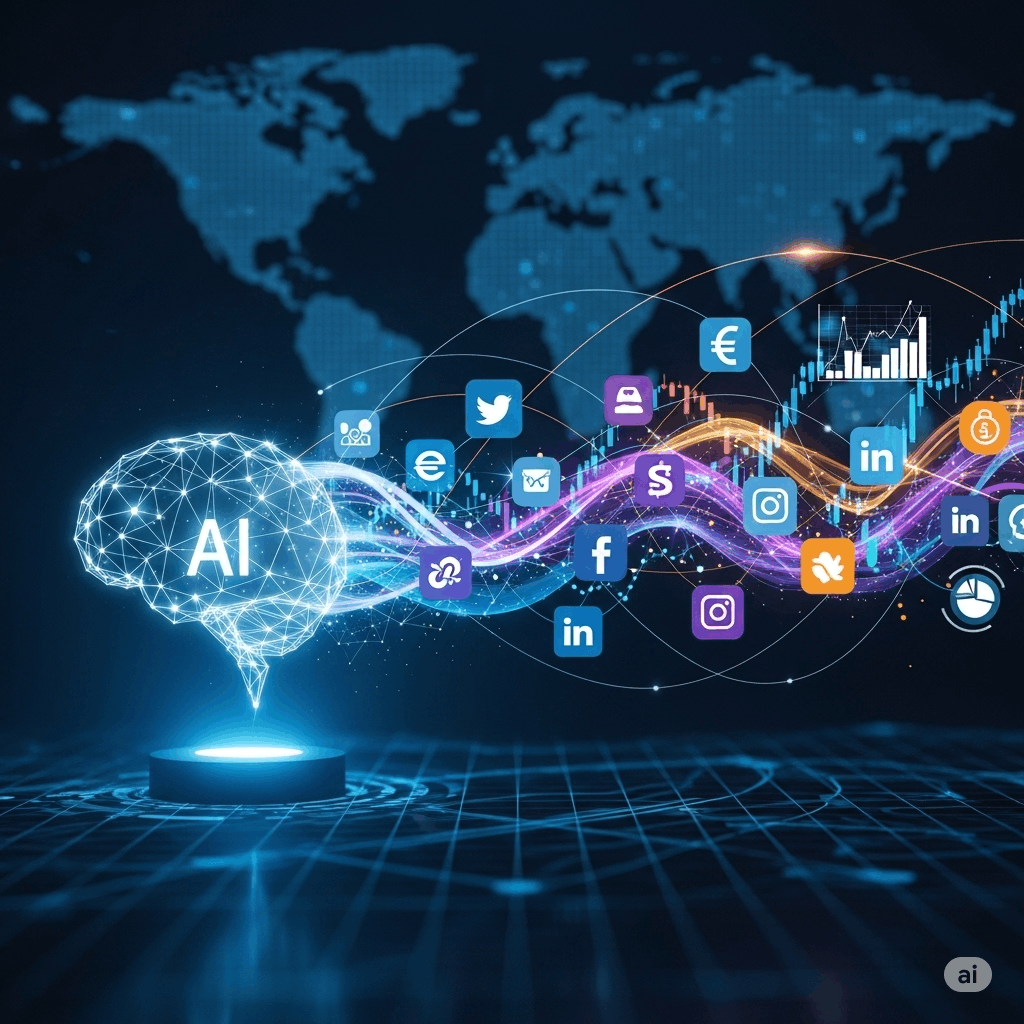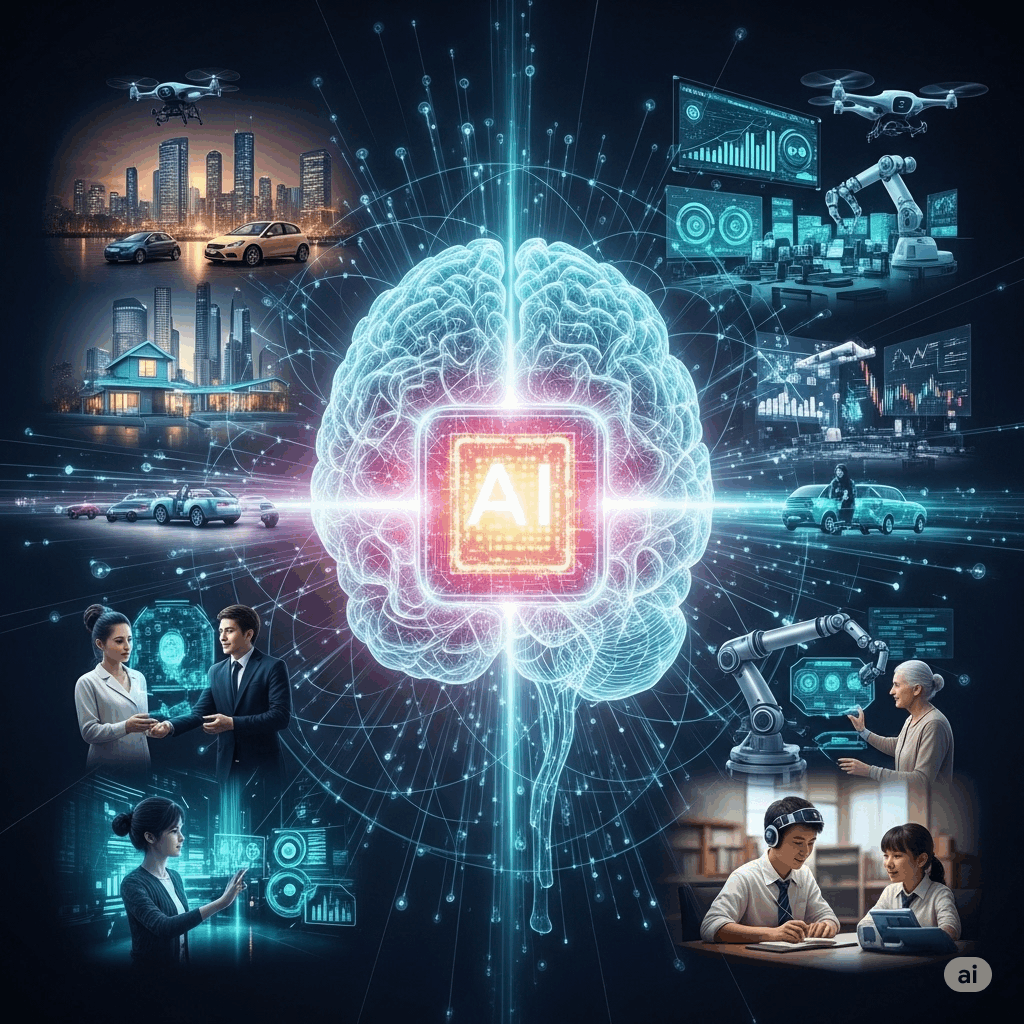AI, Social Media, Business Platforms, and Their Growing Importance in the Digital Economy
Introduction
In the digital age, Artificial Intelligence (AI) is revolutionizing the landscape of social media and business platforms. These technologies not only facilitate connections but also drive strategic business growth, customer engagement, and operational efficiency. Understanding the role of AI across these sectors is vital for businesses and individuals navigating the evolving digital economy where AI-enhanced tools have become indispensable.
Chapter 1: The Evolution of AI in Social Media
AI in social media has evolved from automating simple tasks to powering sophisticated strategies that enhance user experience and business outcomes. Predictive analytics now forecast audience behavior, enabling brands to share content at the perfect moment for maximum engagement.
AI Agents and Real-Time Interaction
AI-powered chatbots and virtual assistants have become essential for 24/7 customer service on social platforms. These agents provide personalized responses, resolve customer issues promptly, and drive conversation flow, acting as the frontline for brand engagement.
Content Creation and Curation
Generative AI tools, such as ChatGPT and image generators like DALL-E, create compelling text and visual content with speed and creativity, allowing brands to maintain a consistent and appealing presence on social media.
Social Listening and Sentiment Analysis
AI algorithms track and analyze brand mentions, user sentiment, and emerging trends across platforms. This intelligence helps businesses respond dynamically to public perception and refine marketing strategies in real time.
Chapter 2: AI’s Role in Business Platforms
Enhanced Customer Insights and Targeting
AI processes huge volumes of data from social media interactions and digital platforms to identify potential customers, predict buying intent, and tailor marketing campaigns with high precision, increasing ROI.
Automation of Routine Business Processes
AI-driven automation optimizes tasks like scheduling, content posting, and customer relationship management (CRM), reducing workload and human error while boosting efficiency.
Decision Making and Strategy Optimization
AI-powered analytics provide businesses with actionable insights, empowering informed strategic decisions. For example, AI tools predict market trends or competitor movements, allowing companies to adapt proactively.
E-commerce and Social Commerce Integration
AI integrates with social media platforms to facilitate seamless shopping experiences—recommendation engines, virtual try-ons, and AI influencers enhance discovery and purchase workflows.
Chapter 3: The Importance of AI in Modern Digital Economy
Scaling Personalized Interaction
AI enables brands to interact with millions of users in a personalized manner, which is impossible through manual effort alone. This hyper-personalization drives customer loyalty and lifetime value.
Driving Innovation and Competitive Advantage
Companies leveraging AI on social and business platforms gain speed, accuracy, and creativity, setting new industry standards and staying ahead in competitive markets.
Expanding Market Reach
AI-powered content translation, sentiment understanding, and trend spotting help businesses expand into new demographies and geographies effectively.
Cost Efficiency and Productivity
By automating repetitive tasks and optimizing ad spend, AI allows businesses to do more with less—crucial in a landscape where rapid content generation and timely engagement count.
Chapter 4: Ethical Considerations and Challenges
Data Privacy and Security
As AI systems collect and analyze vast personal data, protecting user privacy and complying with regulations like GDPR are critical challenges for businesses integrating AI in social media platforms.
Bias and Transparency
Ensuring AI algorithms operate fairly and transparently remains a priority to prevent discriminatory practices and to maintain consumer trust.
Human Oversight and Authenticity
Despite AI’s power, maintaining human oversight is important to preserve authentic brand voice and empathy in communication.
Chapter 5: Future Trends and Preparing for 2025 and Beyond
AI-Driven Content Ecosystems
Expanding use of generative AI tools in creating text, images, music, and video will become standard for brands.
Integrated AI Agents Across Platforms
From handling customer queries to moderating content, AI agents will grow more sophisticated and embedded across all social and business platforms.
Cross-Platform Analytics and AI Collaboration
Advances in AI will enable unified analytics across multiple platforms, driving holistic strategy development and execution.
Emphasis on Ethical AI Practices
Next-generation AI governance will focus on privacy, transparency, and ethical usage, shaping how businesses incorporate AI technologies.
Conclusion
Artificial Intelligence is no longer optional but essential in the realms of social media and business platforms. It empowers personalized engagement, drives efficiency, and fuels innovation, making it a cornerstone of modern digital business strategy. As AI continues to evolve rapidly, embracing its capabilities while managing ethical challenges will define the success of businesses and the sustainability of social ecosystems in the digital age.



